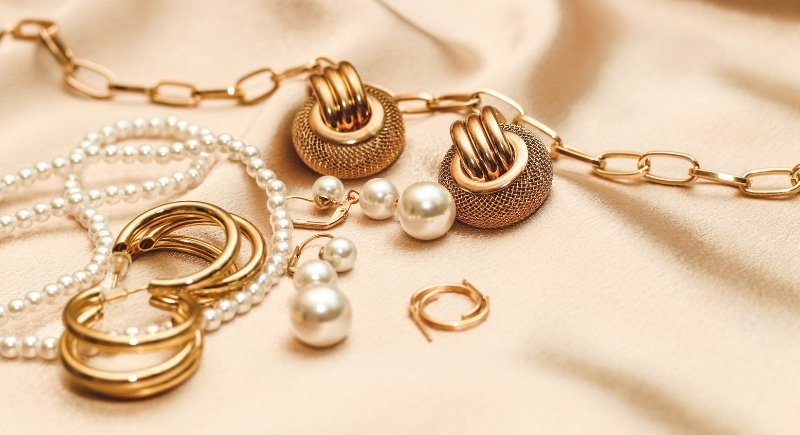Don’t Let These Assets Tear Your Family Apart When You Die
Estate planning isn’t only about money in the bank. The objects and properties you leave behind can set off arguments that last longer than the grief itself. A vacation home, a ring, even a pet can spark resentment if there’s no plan in place. The list below highlights the assets that most often cause trouble, along with how to deal with them before they become a problem.
Timeshares

Credit: Getty Images
Timeshares can feel like a perk while you’re alive, but they usually turn sour once they’re passed down. The fees don’t stop, the contracts don’t end, and the kids rarely want the responsibility. Instead of handing them a problem, deal with it yourself: cancel it, sell it, or walk away before it lands in their lap.
Vacation Homes

Credit: Getty Images
A vacation home might look like a generous gift, but it often turns into a tug-of-war once it changes hands. Disagreements surface over holidays, upkeep, and costs, and small issues quickly grow into grudges. If you want to spare your family the fight, spell out how it should be handled while you’re alive.
Sentimental Items

Credit: Getty Images
Sometimes, small objects with deep memories—an old guitar, a wedding ring, a photo album—can matter more than a house or a bank account. Without guidance, these keepsakes can turn siblings against each other in ways that never heal. A clear plan for who gets what can spare your family from carrying resentment long after you’re gone.
Cryptocurrency

Credit: pexels
Digital coins don’t sit in a drawer or a bank account. They sit behind passwords, keys, and platforms that often die with the person who held them. Families who inherit crypto without clear access details often find themselves staring at assets they can’t reach. The value may be real, but without instructions, it might as well not exist.
Family Businesses

Credit: Getty Images
A business that once held a family together can just as easily pull it apart. Disagreements over who runs it, who profits, and how decisions get made often surface as soon as the founder is gone. Without a plan for succession, even children who’ve worked side by side in the company may turn into rivals.
Valuable Collectibles

Credit: Getty Images
Inheritances often spark more conflict than comfort, especially when collections like rare stamps or classic cars are left without explanation. What you see as treasures can feel like overwhelming puzzles to those who come after you, leaving them to argue over value, ownership, and meaning. The simplest way to avoid that turmoil is to take action now—get items appraised, record your wishes, and communicate them clearly.
Guns

Credit: Canva
Plan ahead by ensuring that all necessary permits and regulations are in place to avoid conflict. Guns can be tricky. Heirs might feel uncomfortable inheriting weapons, or worse, if not properly transferred, the guns could be confiscated. Depending on the state, inheriting firearms might require a permit or registration, and that’s before we get to the emotional baggage they carry.
Pets

Credit: Getty Images
When an owner dies, animals are left in limbo. Families often disagree about who takes them in, and the pet itself becomes a flashpoint. A beloved dog or cat isn’t just another possession, and without arrangements in place, arguments over care quickly replace affection with resentment.
Jewelry

Credit: Getty Images
Make sure to list these items and, if necessary, get them appraised to avoid a showdown over who gets the family’s precious gems. Jewelry is an obvious one, but it can often be harder to divide than you think. A piece of gold might seem priceless to one child, while another sees it as just another trinket. Plus, values can differ greatly depending on market fluctuations.
Cars

Credit: pexels
Keys can cause as much trouble as deeds. A classic roadster, a pickup, or even the family sedan often becomes a prize worth fighting over. Titles, upkeep costs, and emotional weight collide, and the question of who drives away can sour relationships faster than almost anything else in an estate.
Artwork

Credit: iStockphoto
If you have a collection of fine art, it’s not only about the money but about taste as well. A formal appraisal and instructions on who gets which piece can save your family from painting a picture of anger. One family member might cherish the pieces, while another might want to sell them for cash.
Social Media Accounts

Credit: iStockphoto
An online life can be just as personal as a photo album on a shelf. Posts, messages, and cloud archives often vanish into locked accounts once the owner is gone. Families run up against platform rules they can’t bend, and what was once a living record becomes frustratingly out of reach.
Intellectual Property

Credit: Getty Images
Creative work can outlive its maker, but it rarely slips into the next generation without friction. A song, patent, or manuscript may suddenly look like money on the table, and that’s when arguments begin. Courts are full of heirs fighting over rights that weren’t spelled out, proving ideas can divide families as much as property.
Real Estate Properties

Credit: Getty Images
Property rarely passes smoothly. To one heir, it’s a legacy, to another, it’s a pile of cash waiting to be unlocked. Disagreements over selling, renting, or keeping it often turn emotional. Add upkeep costs or taxes, and real estate becomes less an inheritance than a battleground.
Unseen Debts

Credit: Getty Images
Not all inheritance is positive. Inheriting debt is a reality, but often one that comes as a surprise. Unpaid loans, credit card debt, or an underwater mortgage can be a heavy burden on your heirs. Before passing on your estate, be sure to settle any outstanding debts. And if you can’t, make sure your heirs know about them to avoid financial and emotional turmoil.